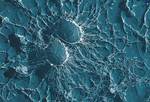New views on world's smallest minds
 Philosophy Philosophy
In the film When Harry Met Sally, a female diner watches Meg Ryan in faked ecstasy at the next table and famously says to the waiter, "I'll have what she's having." A recent study suggests that female fruit flies behave similarly to the diner: females go for males they have "observed" through glass in the company of other females, even if the male is in poor condition and much better physical specimens are available. Can we say the fly has decided to "have what she's having" on the basis of observation? Can we say she has "decided" or "observed" anything at all? The short answer is, no. While most people think humans aren't the only creatures with minds - and Darwinism suggests there are good reasons to believe that - there is no agreement in the cognitive sciences about where minds begin on the tree of life. This month, scientists and philosophers from eight universities in four countries will meet at the small beach community of Carrickalinga, south of Adelaide, for an unusual, potentially groundbreaking multidisciplinary workshop. They are coming to explore the possibility of "mind" - traditionally thought of in terms of cognition, emotion and motivation - in very simple organisms, such as fruit flies, worms, and even bacteria. The workshop is part of an Australian Research Council-funded project headed by Dr Jon Opie, Senior Lecturer and head of the Discipline of Philosophy, and postdoctoral fellow Dr Pamela Lyon, whose PhD thesis inspired the project. Dr Opie, a former McDonnell Foundation fellow in neurophilosophy, co-supervised Dr Lyon's thesis, which won the 2006 Crawford Prize, the medal awarded for best PhD at the Australian National University. "Pamela started looking at the behaviour of bacteria in the context of cognitive science, which was unusual," said Dr Opie. "What struck me was the abstract similarity between the behaviour in these simple, single-celled organisms and the sorts of perception-driven behaviour we study in cognitive science. "When I looked closer at the details, I was even more surprised to see that some of the mechanisms at work in bacterial sensory systems are very similar to those we see in more complex animals. This I did not expect." The 12 participants at the workshop, which is also supported by the Faculty of Humanities and Social Sciences, include top international figures. Professor Ralph Adolphs (California Institute of Technology) is a world leader on research into emotion and social cognition. Professor Colin Allen (Indiana University) helped pioneer the use of data on animal behaviour in cognitive science at a time when modelling human cognition was the focus of the field. Professor Janet Wiles (University of Queensland) heads one of the ARC's major "Thinking Systems" programs. Professor David O'Carroll (University of Adelaide) is a leading researcher into the neurobiology of fly vision. Others bring expertise in the role that model organisms play in biology, how concepts develop in neuroscience, and developing fruitful collaboration between philosophers and biologists. Speaking on Radio National's All in the Mind program last year, Dr Lyon suggested that bacteria might be cognitive. At the workshop, does she expect others to agree? "What cognition is and what sorts of organisms have it are things for scientists to decide. Microbiologists talk about 'memory' and 'communication' and 'decision making' in bacteria. Are they right to do so? Who's to say? This is just the beginning of the discussion," she said. Immediately after the workshop, a free public mini-conference called Minding Life will be held at the University of Adelaide, on Monday 20 July. Minding Life will enable some of the participants in the workshop to share their thoughts on these issues with the public. For more information about Minding Life and cognitive biology, go to: www.hss.adelaide.edu.au/philosophy/cogbio/ Story by David Ellis
|





